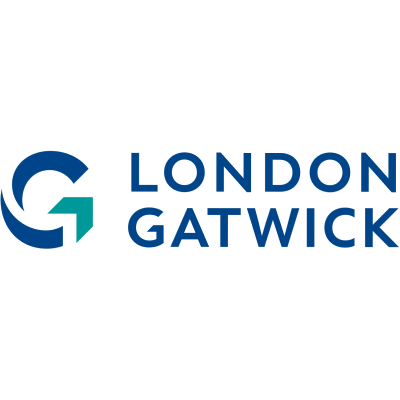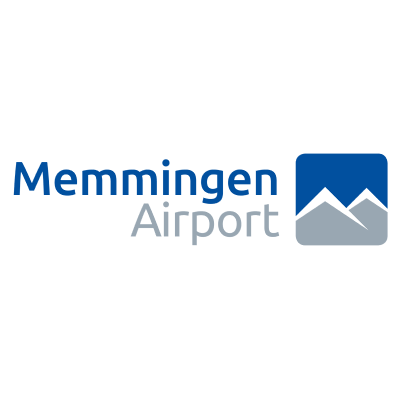For much of last year, airports remained empty. Figures from the House of Commons Committees showed an unprecedented reduction in air travel of 97% in 2020 due to COVID-19, with thousands of planes grounded and left parked on the tarmac.
Thankfully, with over 29.4% of the population now fully vaccinated and restrictions slowly lifting, a travel boom is looming. But are airports ready for it?
The pandemic has undoubtedly changed the way airports operate. From e-ticketing to contactless customer service, airports have digitalised more and more processes. But it’s also redefined the way airports communicate with customers. Frequent changes to regulations, flight schedules and travel requirements have made real-time communications between airports and customers essential.
Today, airports need to make sure customers are fully informed, in the right place, at the right time and equipped with the correct testing evidence and documentation. Not only that, but they have the task of reassuring customers, ensuring they feel safe and confident in visiting the airport, using its services and getting onto the plane.
Customers want to feel in control of their travel experience, and for this, they need to be well-informed and able to communicate in real-time with the airport. Airports will, therefore, greatly benefit from CRM and marketing automation software to achieve these fast and efficient communications with customers.
But what is the difference between CRM and marketing automation, and which software does an airport need to streamline its operations and achieve high levels of customer satisfaction post-pandemic? Let’s take a closer look.
What is CRM?
CRM, or customer relationship management, is sales-focused software used to store and optimise customer information. Data is segmented and analysed to build a clear picture of each customer, informing marketing decisions and facilitating the airport to deliver the best service.
Where airport footfall previously benefited airlines, car parking operators and retail concessions, airport CRM enables the airport to learn about its passengers, offering a real-time, accessible, integrated approach to information management.
It also improves operational efficiency, allowing for the automation of small tasks such as reports, online forms and emails so that employees can focus on customer engagement.
What is Marketing Automation Software?
Marketing automation software automates the marketing process, streamlining marketing tasks such as customer retention, abandoned cart recovery, lead generation and ROI measurement. As with CRM, airports can use the data held within the system to analyse customer behaviour, predict peaks and lows, personalise communications and make marketing more focussed and efficient.
At its best, marketing automation software and tactics allow your airport to nurture prospects with valuable, highly personalised content that converts them to satisfied customers. It will help you streamline and prioritise marketing tasks, generating significant revenue and an excellent ROI.
The ultimate aim is to nurture your leads through the entire buying process, achieved by delivering targeted, personalised messages that address each customer’s specific barriers to purchase.
A basic automated workflow:
- Step 1: Send an email invitation to explore a new destination or flight from the airport, asking people to download a free destination guide.
- Step 2: Send a thank you email to all the people who take up the offer.
- Step 3: Several days later, follow up with an email to those people, offering them a discount on flight booking to the new destination through the airport.
- Step 4: When a lead clicks through to the online flight ticket booking page, send your sales team a notification so that they can follow up with that person to convert.
Now imagine that you are the customer. Suppose you were receiving information from an airport about flights, destinations, ancillary services or concessions. Would you prefer to get personalised, targeted messages or an email that has been blanket-sent to thousands of people?
Personalised emails can impact how the customer interacts with the company and increase trust, making them more likely to purchase.
Generate leads
According to Hubspot, the term ‘marketing automation’ has become a buzzword. Marketers look for automation software believing that it will offer all of the tools necessary for growth, including those needed to generate new leads. Hubspot says this is a misconception, suggesting that marketing automation focuses on the middle of the sales funnel and offers little in the way of inbound leads.
We’d argue this is a somewhat subjective view. It largely depends on the quality of the software and the way that impacts your overall strategy. A combination of successful marketing and CRM will create loyal customers who will become brand ambassadors, and if marketing successfully builds brand awareness and trust, leads will convert.
Some software sold for automation may not be comprehensive enough. However, quality marketing automation software will easily integrate with marketing and sales to collect data and inform the sales team to target specific customers and generate leads.
Always do your research before choosing a marketing automation system. Make sure you select a product that offers specific lead generation tools. Don’t assume that every system will deliver what you need.
Measure ROI
Marketing automation software allows you to collate all your sales and marketing data to help determine ROI for email marketing campaigns, webpage designs (using split A/B testing), social media and special offers.
A marketing automation system should have the capability to analyse the data to give you real-time, trackable, actionable insights.
Keep hold of your customers
According to MyCustomer, it costs five times more to attract a new customer than keep an existing one. So while lead generation is crucial to develop your airport’s customer base, customer retention is essential to growth. Marketing automation provides insight into customer behaviour and preferences, which allows your marketing team to build better communication strategies.
How do CRM and Marketing Automation differ?
Marketing automation should, by nature, be marketing-focused, starting with raw leads and tracking their data to foster commitment. CRM is sales-focused. Once a lead has engaged with your airport, either by showing interest in your products or services or making a purchase, CRM will build personalisation into the communications and manage your ongoing relationship with that particular customer.
Can I have both?
Discover the benefits of both marketing automation and CRM with Rezcomm. Our innovative plug-and-play airport marketplace offers an integrated, omnichannel solution so you can benefit from the best of both worlds and more.
Let your team focus on your business, not your tech stack. Our next-generation solution combines powerful Customer and Marketing modules to support your airport in managing customer data and automating communications to generate loyalty, nurture leads and increase customers’ lifetime spend while saving precious time.
Rezcomm’s marketing suite automatically syncs with customer activities in real-time, while intelligent automation tools deliver hyper-personalised communications via email, SMS and social media seamlessly and at scale. Meet customers’ expectations to communicate in whatever way they choose, no matter their location.
With intelligent services like multilingual chatbots driven by automated AI, the Rezcomm Marketplace is a real game-changer for airports post-pandemic. So why not join our growing list of forward-thinking partners? Get in touch to request a copy of our brochure.





























